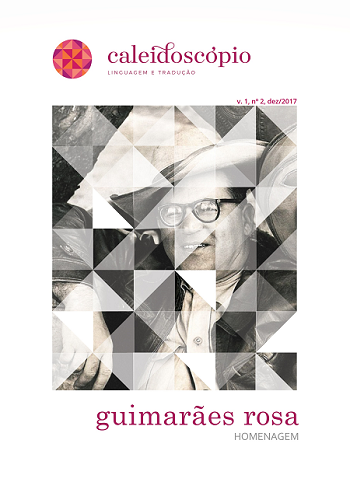La traduction littéraire ou l'art de « faire refleurir les déserts du sens »
DOI :
https://doi.org/10.26512/caleidoscopio.v1i2.7091Mots-clés :
Literary translation;, Creativity;, Rewriting;, History of translating;, Poetics.Résumé
Literary translation is essentially a creative process of rewriting. The translator is the author of the translation text, even if he is not the author of the original text. A translation is never a clone of the original. In translating, we do not say the same thing differently, we say something else differently, as Henri Meschonnic put it. Concepts borrowed from the field of history of translation, like historicism, passive retranslation and active retranslation are used to go against those who still erroneously think that the meaning of a literary text lies only in its words, and claim that “we translate words because there is nothing else to translate”. Against this linguistic and literary approach, the poetics approach takes into account the fact that, between the author and the reader, the translator is an active and creative agent in the process. Translating is always a “ménage à trois”.
Téléchargements
Téléchargements
Publié-e
Comment citer
Numéro
Rubrique
Licence
Mention de droit d'auteur
Les auteurs qui publient dans cette revue acceptent les termes suivants :
- Les auteurs conservent le droit d'auteur et accordent à la revue le droit de première publication, l'ouvrage étant alors disponible simultanément, sous la Licence d’attribution Creative Commons permettant à d'autres de partager l'ouvrage tout en en reconnaissant la paternité et la publication initiale dans cette revue.
- Les auteurs peuvent conclure des ententes contractuelles additionnelles et séparées pour la diffusion non exclusive de la version imprimée de l'ouvrage par la revue (par ex., le dépôt institutionnel ou la publication dans un livre), accompagné d'une mention reconnaissant sa publication initiale dans cette revue.
- Les auteurs ont le droit et sont encouragés à publier leur ouvrage en ligne (par ex., dans un dépôt institutionnel ou sur le site Web d'une institution) avant et pendant le processus de soumission, car cela peut mener à des échanges fructueux ainsi qu'à un nombre plus important, plus rapidement, de références à l’ouvrage publié (Voir The Effect of Open Access).




.png)
